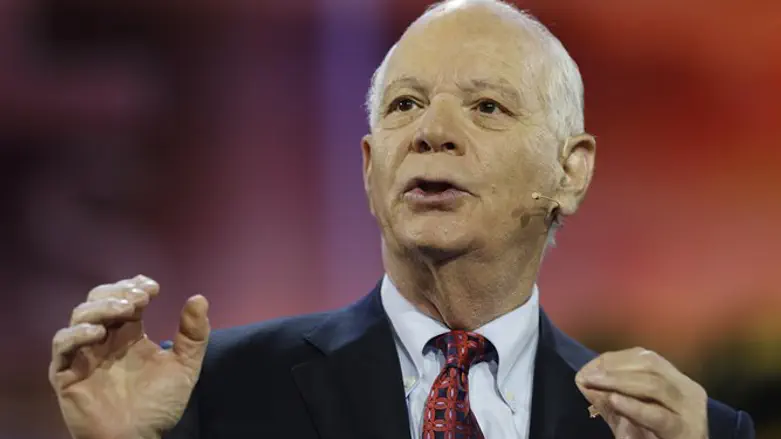
On the anniversary of the Iran nuclear deal, more than a dozen Democratic senators called for an extension of the existing sanctions on the Islamic Republic.
Sens. Ben Cardin of Maryland and Charles Schumer of New York, along with 12 others, introduced legislation on Thursday to renew the Iran Sanctions Act of 1996, which is set to expire at the end of this year. Cardin is the ranking member of the Senate Foreign Relations Committee and Schumer chairs the Senate Democratic Policy Committee; both are Jewish.
Congress unanimously passed the 1996 legislation to stop major foreign investment in Iran’s energy sector, with the goal of denying the regime the ability to financially support international terrorism, nuclear proliferation and missile proliferation. Since then, Congress has extended the bill several times.
Cardin called on Republican senators to join in renewing the act.
“After extensive consultations with my colleagues in both chambers of Congress and on both sides of the aisle, it is clear that we need to reauthorize the Iran Sanctions Act before the end of the year," he said. "Doing so is vital if the United States wants to retain a credible deterrent of snap back sanctions."
The Joint Comprehensive Plan of Action, or JCPOA, was reached between Iran and the world powers, including the United States, on July 14, 2015.
The deal has achieved its objectives, President Barack Obama said in a statement issued by the White House.
"Over the last year, the Iran deal has succeeded in rolling back Iran's nuclear program, avoiding further conflict and making us safer," the statement said.
"During the past year, Iran has implemented its nuclear-related commitments, as verified by the International Atomic Energy Agency (IAEA). Iran has shipped out 98 percent of its enriched uranium, dismantled two thirds of its centrifuges, filled its plutonium production reactor with concrete, and adopted the most intrusive inspection and verification program ever negotiated for a nuclear program. IAEA reports have confirmed that Iran is complying with its commitments."
The statement said that "all of Iran’s pathways to a nuclear weapon remain closed, and Iran’s breakout time has been extended from two to three months to about a year. The United States and our negotiating partners have also fully implemented our commitments to lift nuclear-related sanctions, and we will continue to uphold our commitments as long as Iran continues to abide by the deal."
Obama has threatened to veto three pieces of legislation passed by House Republicans because he said they undermine the ability of the United States to meet its commitments under the JCPOA.
Earlier this month, Republicans passed legislation to block Boeing and Airbus from selling commercial aircraft to Iran and to limit the president’s authority to implement sanctions relief.